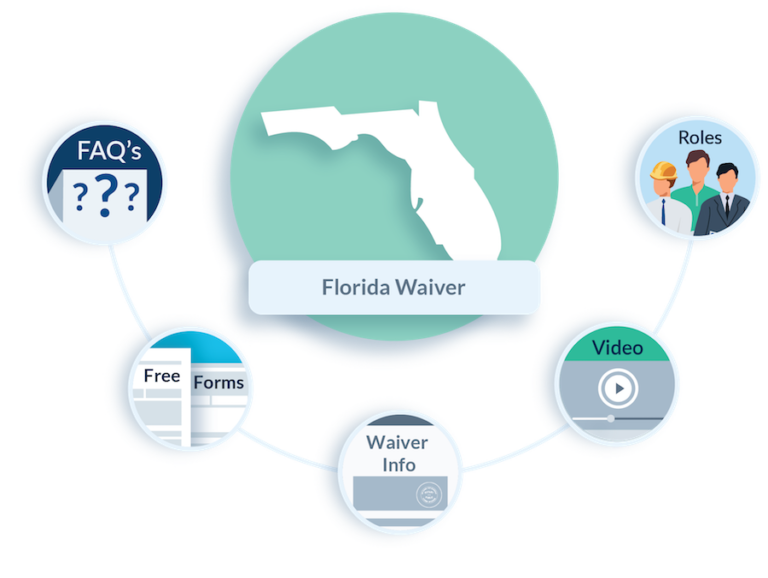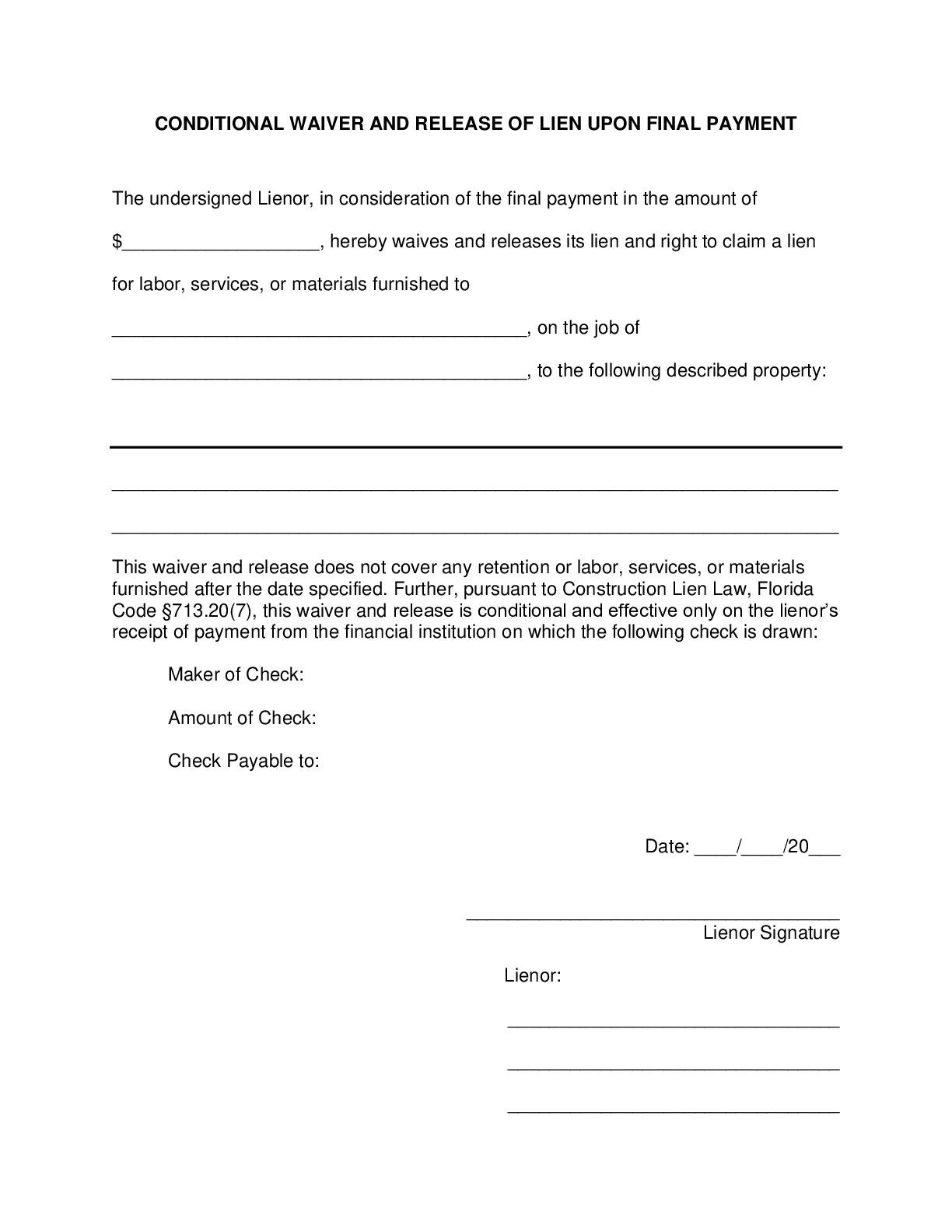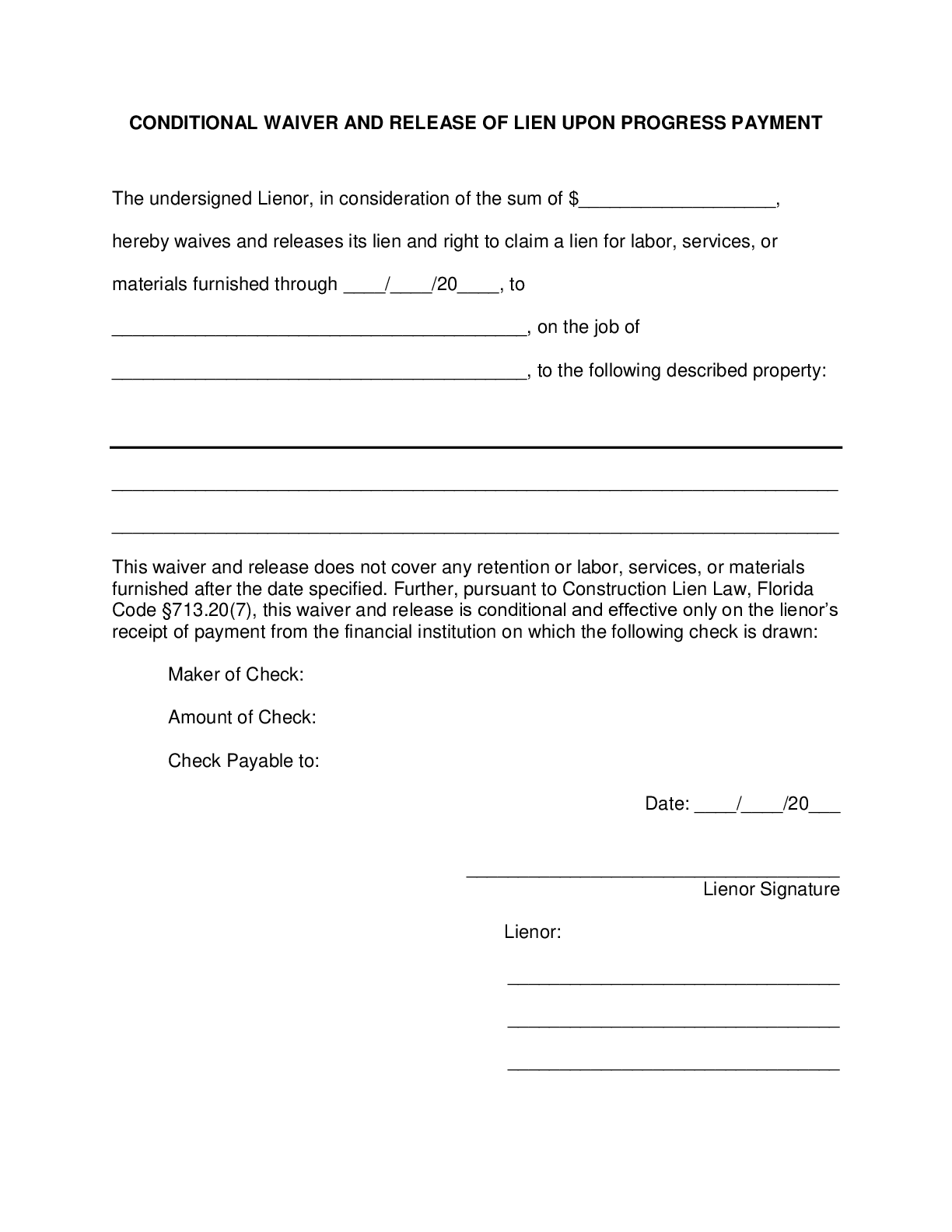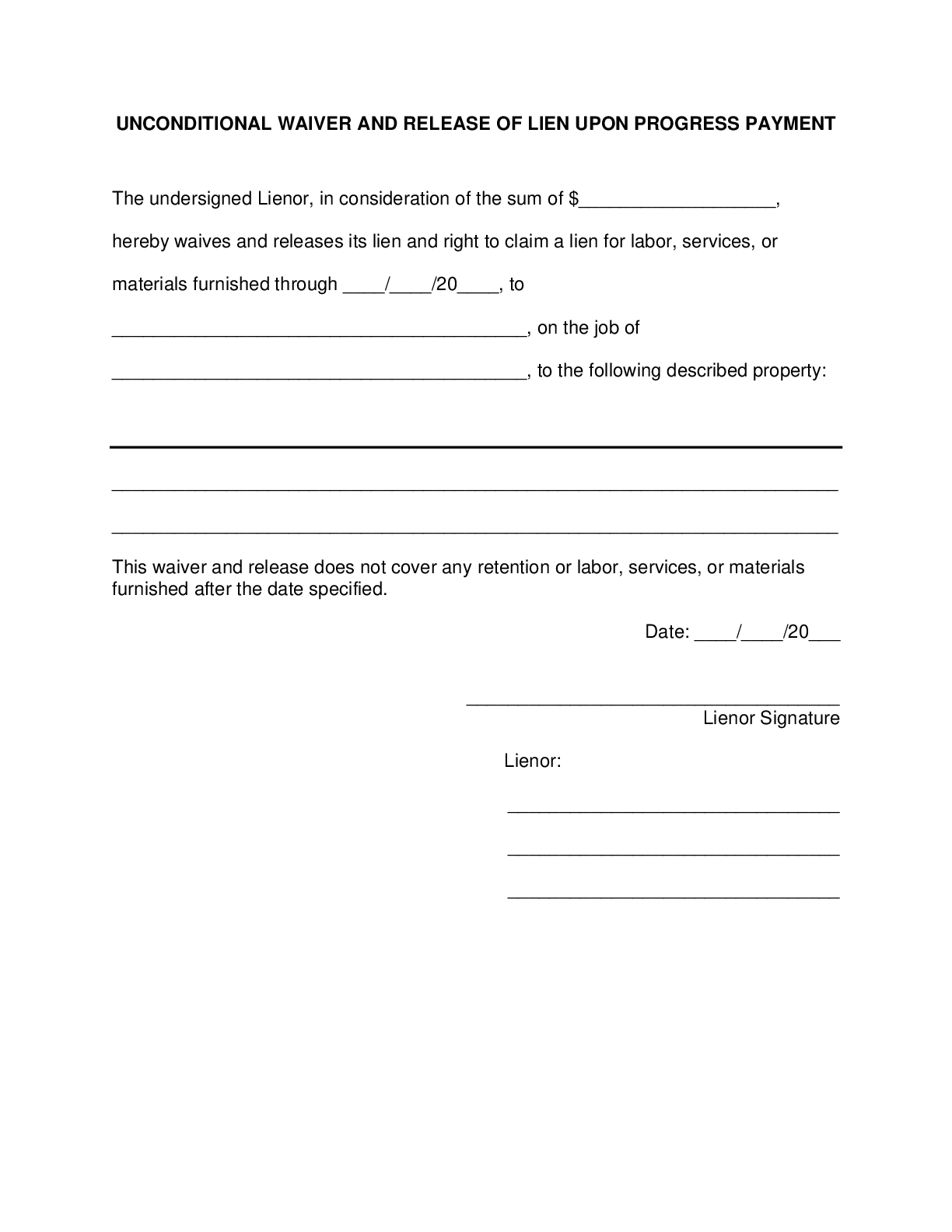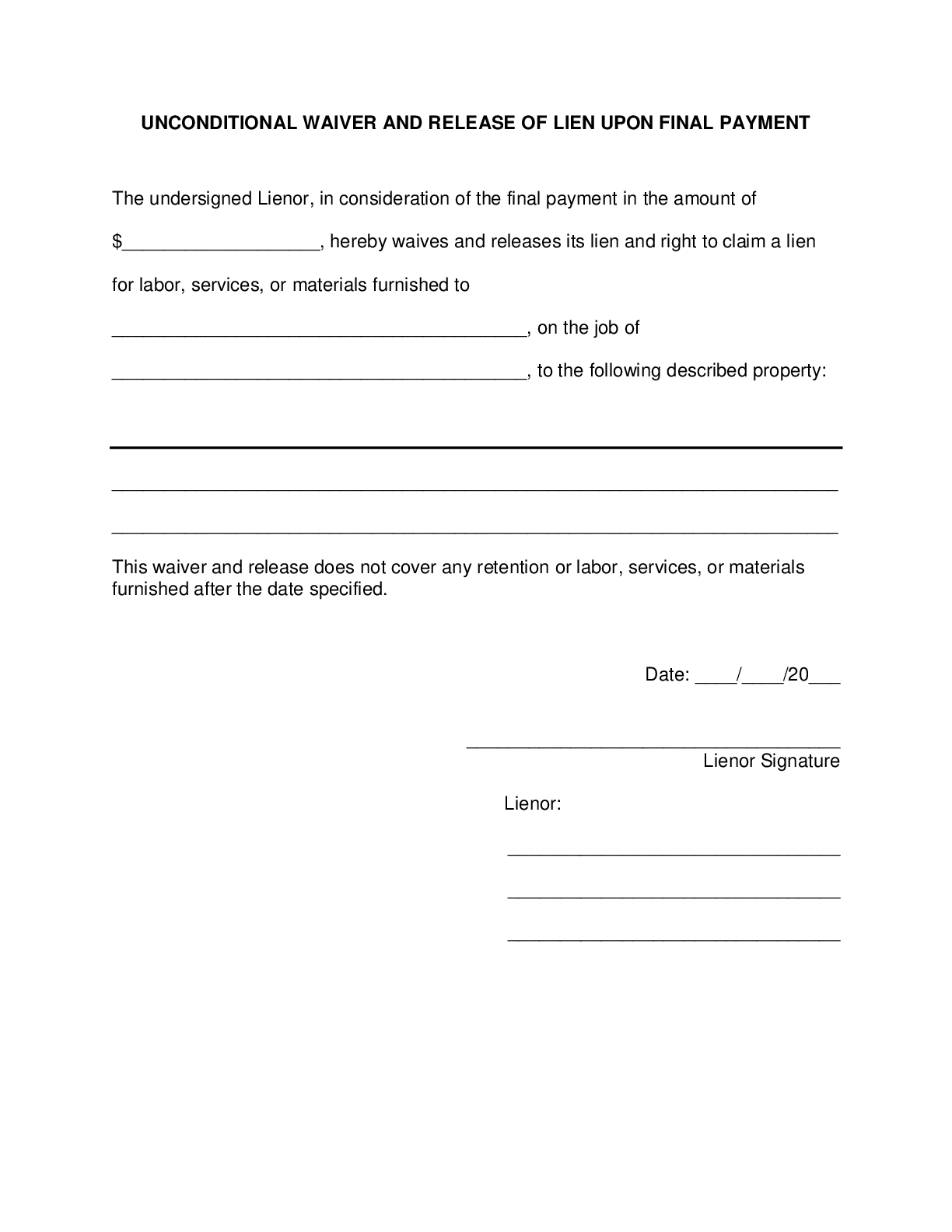Florida Lien Waiver Rules
- Rules At A Glance
- Top Links
Specific Forms Are Required
Florida provides statutory lien waiver forms. While parties can agree to use an alternate form, no party can be forced to use a form that differs from the statutory form.
Notarization Not Required
Florida statutory lien waivers are not required to be notarized, and gain no practical benefit from notarization.
Cannot Waive Rights in Contract
Florida specifically prohibits waiving lien rights in a contract prior to furnishing labor and/or materials, to the project.
Can Waive Rights Before Payment
While lien rights may not be waived prior to furnishing labor or materials. However, waivers ARE allowed prior to payment.
Lien waivers are pretty complex documents. But they are also unassuming because of how frequently they get exchanged on construction jobs across the country, and in Florida. A lien waiver is basically a receipt that payment has been made for work or materials on a job. These documents are exchanged at the time of payment, and commonly attached to subcontractor pay applications or vendor invoices.
There are different types of lien releases for different types of situations. And these documents have significant consequences for everyone on a job — as it connects directly to everyone’s right to cash! Also, one pesky aspect of lien waivers is that the process of sending, requesting, tracking, and collecting lien waivers is an administrative pain that slows down the payment on a project.
Knowing everything you can about lien waivers will allow you to make your process faster. And if your process is faster, your cash will move faster; and that’s good news for everyone on the project!
- For more on lien waivers in general, see: The Ultimate Guide to Lien Waivers in Construction
Florida lien waiver laws
Florida lien waivers (commonly called Lien Waiver and Releases in Florida) are regulated by state statute, and the specific rules and form requirements can be found under Fla. Stat. §713.20. Florida’s approach to lien waivers is pretty unique, and because there are some tricky things about whether certain things are or are not required, it can lead to some confusion regarding your Florida mechanics lien rights. Here are two things that are particularly unique to Florida’s mechanics lien waiver laws.
Statutory waiver forms are “required,” unless the parties agree otherwise
Generally speaking, a Florida lien waiver form must contain specific language and information. Yet, these are recommended forms, not necessarily required. The statutory forms are offered as a safe, mistake-free option for parties to use. However, if the parties agree beforehand to use an alternative lien waiver form, the waiver is still enforceable according to the terms of the waiver.
This allows parties to be able to agree to their own terms concerning lien waivers. The only exception to this is that contractors and suppliers cannot be required to use a non-statutory form. There must be mutual consent to use the alternate form. If using an alternate form, be wary of the inclusion of language that waives more contract and mechanics lien rights than originally anticipated. And be wary about the extent of the other party’s “consent.”
Statutory lien waivers are all unconditional, unless conditional language is added
As written, the lien waiver forms provided by the Florida statutes are unconditional, meaning valid and enforceable upon signing. If using one of these forms and payment hasn’t already been made (i.e. deposited in your account), then you may want to execute a conditional waiver form. Florida law specifically allows claimants to add language which conditions the enforceability of the waiver upon payment. Which is always the safer bet.
While all this may seem like an aggravation on first blush, the truth is that not having lien waiver rules is the real headache.
How to fill out a lien waiver in Florida
If you’re having trouble filling out these Florida statutory lien waiver forms, here are two guides to help you find the proper form, input the correct information, and convert them to conditional waivers if need be:
Whether using the statutory forms or an alternate lien waiver form, mistakes can still be made. This is why it’s so important to understand Florida’s lien waiver requirements. This page contains lots of information, FAQs, guides, forms, and more, to help you become a master of the complex Florida lien waiver requirements.
